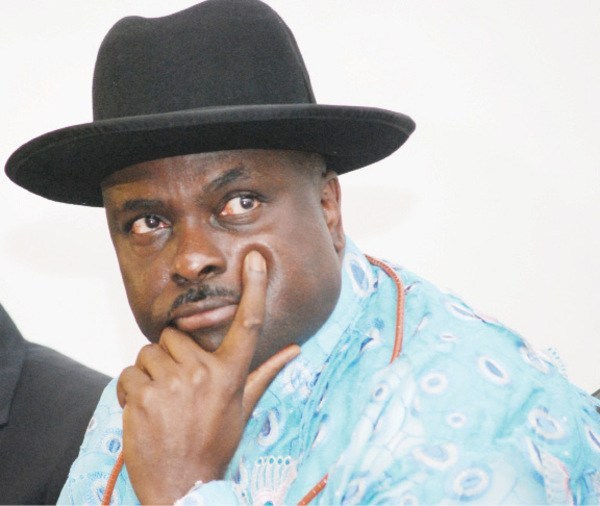James Onanefe Ibori, a former Governor of Delta State, has dragged the United Kingdom to the European Court of Human Rights in Strasbourg, France, in
James Onanefe Ibori, a former Governor of Delta State, has dragged the United Kingdom to the European Court of Human Rights in Strasbourg, France, in a bid to quash his conviction by a London court. The attestation papers, filed in this respect, were received by the European court on April 16, 2019.
The foundation of Ibori’s appeal, according to the papers filed by his counsel, rests on his claim that Britain disobeyed its own laws all in a rush to get him convicted. His counsel argued that the application concerns an unusual provision of United Kingdom law: s17 of the Regulation of Investigatory Powers Act 2000 (‘RIPA’).
According to the former governor’s counsel, “it prohibits any reference, in any proceedings, to an intercepted communication or its contents- e.g. an intercepted phone call – in circumstances in which its origin as an intercepted communication is disclosed or could be inferred. The United Kingdom is virtually unique in having such a provision: intercepted communications are used routinely as evidence in court proceedings throughout Europe and the rest of the world.
Ibori’s counsel alleged that the “operation of Section 17 of RIPA, as applied in the highly unusual circumstances of his case, resulted in a violation of Ibori’s rights pursuant to Article 6 of ECHR”. He further argued that this actually is the crux of the matter, because Britain’s failure to obey its own laws has rendered every other thing that followed, including his guilty plea later, defective.
Ibori went on appeal after pleading guilty. But his counsel said, in the appeal papers filed at the European Court of Human Rights, that Ibori had pleaded guilty to criminal offences but subsequently applied for permission to appeal his convictions in light of the disclosure of new material. According to his counsel, it is this “new material” which surfaced later that Ibori is predicating this appeal on.
The former governor appealed to the EU Court of Appeal because a London Appeal Court had refused to interrogate this submission and actually ruled that the issue of what is now known as “the Wass Note” was a no-go area. He alleged that Britain denied him his rights to fair trial – which is recognised everywhere in the free world.
His appeal was based on the following issues: “That identified corrupt British Police Officers were responsible for the conduct of the case against him. That they deliberately withheld prosecution evidence, which had it been disclosed at the correct time would have prevented any guilty pleas being entered. That the prosecution failed to follow the legally required RIPA procedure as stipulated in British Law.”
He alleged that the Court of Appeal ruled against him and went further to refuse him leave to bring an appeal on the case they had just determined.
